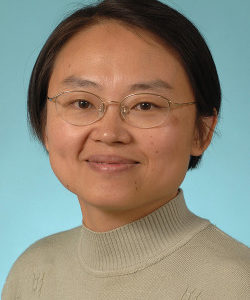Delaying radiation therapy too long after surgery significantly increases the risk of recurrent tumors in women treated for very early, or what is referred to as “stage 0,” breast cancer, according to new research at Washington University School of Medicine in St. Louis.

The researchers found that women were much more likely to experience a recurrence of DCIS or higher-stage cancer in the same breast if they received radiation therapy eight or more weeks after a lumpectomy or did not receive radiation therapy after surgery. The data will be presented April 18 at the American Association for Cancer Research (AACR) Annual Meeting 2016 in New Orleans.
Stage 0 breast cancer – or ductal carcinoma in situ (DCIS) – is diagnosed based on the presence of abnormal cells in the milk ducts of the breast. Every year, more than 60,000 U.S. women are diagnosed with DCIS, and experts often debate how best to treat it because the abnormal cells don’t always develop into full-blown, or invasive, breast cancer. Standard therapies include lumpectomy, lumpectomy plus radiation, or total mastectomy.
“This study indicates not only that radiation therapy is an important component in the treatment of DCIS but also that it must be received in a timely manner,” said Ying Liu, MD, PhD, the study’s lead author. She is an instructor in surgery at the School of Medicine and a research member at Siteman Cancer Center at Barnes-Jewish Hospital and Washington University School of Medicine.
Delays in radiation therapy were more common among women who were black; unmarried; on Medicaid; diagnosed during the later years of the study; diagnosed with larger tumors; or whose cancer wasn’t entirely removed during surgery.
“These groups, especially, may benefit from undergoing radiation therapy sooner,” Liu said.
The researchers studied data from 5,916 women in the Missouri Cancer Registry diagnosed with DCIS from 1996 to 2011 and treated with lumpectomy.
Of those women, 1,053 (17.8 percent) received radiation therapy more than eight weeks after surgery, and 1,702 (28.8 percent) did not receive any radiation therapy as part of their initial treatment. The other 53.4 percent of the patients all received radiation without delay, within the eight-week time frame.
During the average six years of follow-up, 3.1 percent of women developed a recurrence of DCIS or an invasive tumor in the same breast. For women who received radiation within eight weeks, the rate of recurrence was 2.5 percent. After adjusting for age, race, pathological factors, surgical margin status and hormone therapy, the risk of breast cancer recurrence was 26 percent higher for women who had delayed radiation therapy and 35 percent higher for women who did not initially receive radiation.
Liu is calling for more extensive research involving a larger group of patients.
“What we’ve found suggests the need for more studies,” she said. “Our hope is to provide clear-cut guidelines that will help more women reduce their risk of recurrence.”
The Missouri Department of Health and Senior Services and the University of Missouri oversee the Missouri Cancer Registry.
Funding for this research was provided by The Foundation for Barnes-Jewish Hospital and the Breast Cancer Research Foundation.
Liu Y, Yun S, Lian M, Colditz G. Radiation therapy delay and risk of ipsilateral breast tumors in women with ductal carcinoma in situ. April 18, 2016.
Washington University School of Medicine’s 2,100 employed and volunteer faculty physicians also are the medical staff of Barnes-Jewish and St. Louis Children’s hospitals. The School of Medicine is one of the leading medical research, teaching and patient-care institutions in the nation, currently ranked sixth in the nation by U.S. News & World Report. Through its affiliations with Barnes-Jewish and St. Louis Children’s hospitals, the School of Medicine is linked to BJC HealthCare.
Siteman Cancer Center, ranked among the top cancer treatment centers by U.S. News & World Report, also is one of only a few cancer centers in the U.S. to receive the highest rating of the National Cancer Institute (NCI). Comprising the cancer research, prevention and treatment programs of Barnes-Jewish Hospital and Washington University School of Medicine in St. Louis, Siteman is Missouri’s only NCI-designated Comprehensive Cancer Center and the state’s only member of the National Comprehensive Cancer Network.
Originally published by the School of Medicine